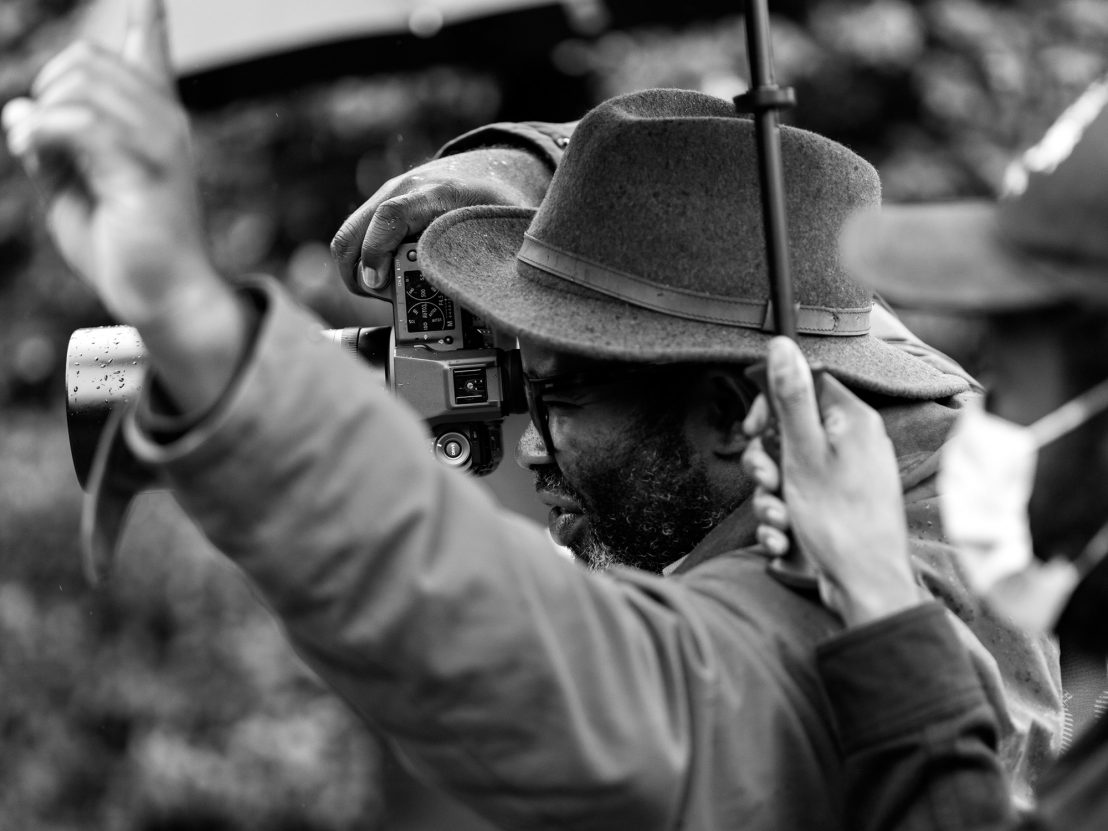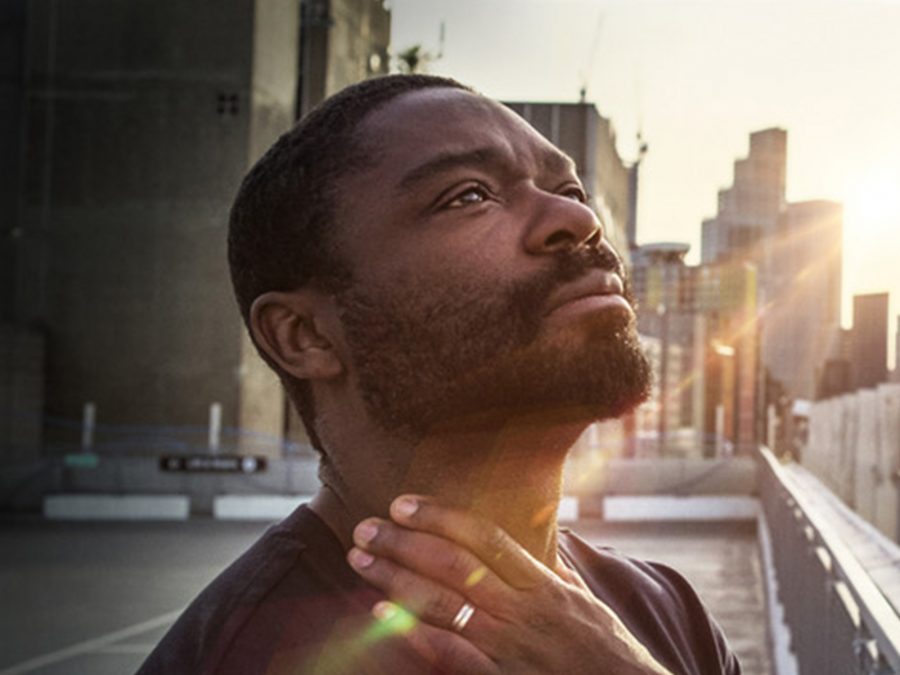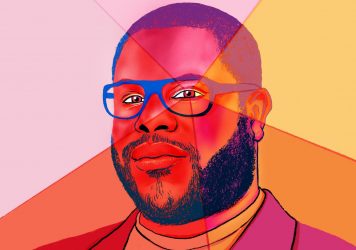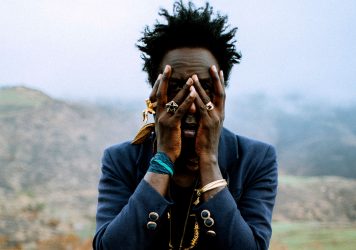
The famed photographer turns his hand at filmmaking with a study of extreme trauma and slow healing in The After.
A businessman, played by the great David Oyelowo, is suddenly forced to experience the depths of human despair and is made to rebuild his life from scratch in the timely and soulful debut short feature by Misan Harriman. Yet The After is not necessarily about such dismal events, as it goes on to explore the ways in which people are able to step back from the abyss, recalibrate their inner-psyche and locate some semblance of balance in their lives. Harriman is a fêted stills photographer whose work captured the global mood in the wake of the murder of George Floyd and the subsequent rise of the Black Lives Matter movement. This natural transition into moving images sees Harriman chanelling pet themes of trauma and the surprising and unique ways that we both process and own it.
LWLies: The After plays out like the realisation of a personal fear of losing family, status and a connection to other people. Where did the idea for the story arise and how personal is it?
Harriman: After the moment of deep reflection we’ve all had, following Covid, I wanted my first moving image piece to reflect the soup of life after we’ve all had to endure an act of God that no one really could have predicted. And then, of course, there are other parts of this story that are from the tapestry of my own lived experience. And there are also some parts that are just conjured up from my overly-active imagination. And all of it came to the story that is The After.
As someone who has dedicated so much time to depicting the legacy of violence through still images, how did it feel to depict an actual moment of violence in your film?
Wow, we’re not giving too much away. The violence portrayed in the film, we’ve been very intentional with how it was filmed, and I think the focus is on the deep loss that is brought upon by violence. But, definitely the focus is very quickly on the loss and in the act of violence itself. It was a joy for me to work with the best stunt coordinators and safety professionals in the business.
What was exciting for you in the transition to film cameras from still cameras? Were the possibilities of the film camera ever daunting for someone so used to taking stills?
No – it’s fascinating to me how comfortable I felt moving from stills to film. I felt truly on a film set; I was breathing in life in full fidelity. I felt like I was home. And, you know, there’s a Robert Frank quote where he says, “The eye must learn to listen before it looks.” And I feel my eyes have been listening since I was a little boy. And so much of the compositional ability, I would say that I have, has transitioned from still to moving imagery very seamlessly. And my understanding of lenses and light have all helped me tell the story exactly how I imagined it in my head.

Can you describe the nature of your collaboration with co-writer John Julius Schwabach, particularly in creating what is such a personal film for you?
In creating such a personal film, working with a writer like JJ, who’s so young and yet so open to collaboration, was a joy. He helped take the story from my head and really bring it into a metropolitan city like London and have it be part of that. It was a waltz. It was a real waltz of creativity, where we both pushed each other and probed the narrative arc and emotional nuance that this story deserved. It was an incredibly easy and enjoyable experience to work with such a brilliant young writer.
How did your experience choreographing subjects for photographic portraits carry over into your work with David Oyelowo?
Well, David is someone that I’ve looked up to and I feel like I’ve grown up with. We also have a very similar lived experience. We are, you know, born in Nigeria, raised in the UK and global citizens, and there were so many unspoken conversations on set. It took just a glance for him to understand what I was needing and where his performance could go. And I felt that was a deep sense of trust and intimacy for him to go to the place that he went to. And I genuinely believe his performance is one for the ages. So my photographic experience probably helped me to be sure of how to frame such a mighty performance. But I also would say that our lived experience and similarities really helped to give him the trust he needed as an actor to soar on the screen.
What do you say to people who believe that there is no respite from trauma?
This film is really answering that question because even though it has trauma in it, it’s really a film about healing. It’s a film that hopefully will allow you to know that there is grace in the process of having open wounds, both visible and invisible. The journey of building yourself back up from such unimaginable pain and loss, brick by brick, is one that there should be no shame of. And one that the community of friends and family that we rely upon should recognize as part of all of our journey. So I think the respite is in the recognition of growth and healing that I hope this film represents.
Do you hope to move to feature filmmaking? Do you have any interest in filmed documentary?
Yes. I have a documentary project in development at the moment that I can’t speak too much about, but I’m very excited about. And I would love to make feature films. You know, I’m reading scripts at the moment and there are numerous ideas in my head that, uh, I should extract with a pen and lots of voice notes in the near future.
Misan Harriman’s The After streams on Netflix from 25 October. Portrait courtesy of Misan Harriman.
Published 13 Oct 2023

By Aaron Hunt
The director reflects on the making of his triumphant ode to Black culture and resilience, Small Axe.

The multi-hyphenate has created a hypnotic, incisive score for Charles Officer’s socially-conscious crime-noir.

The French filmmaker on the nuances of recreating a real-life terrorist attack in her reflective new film, Paris Memories.